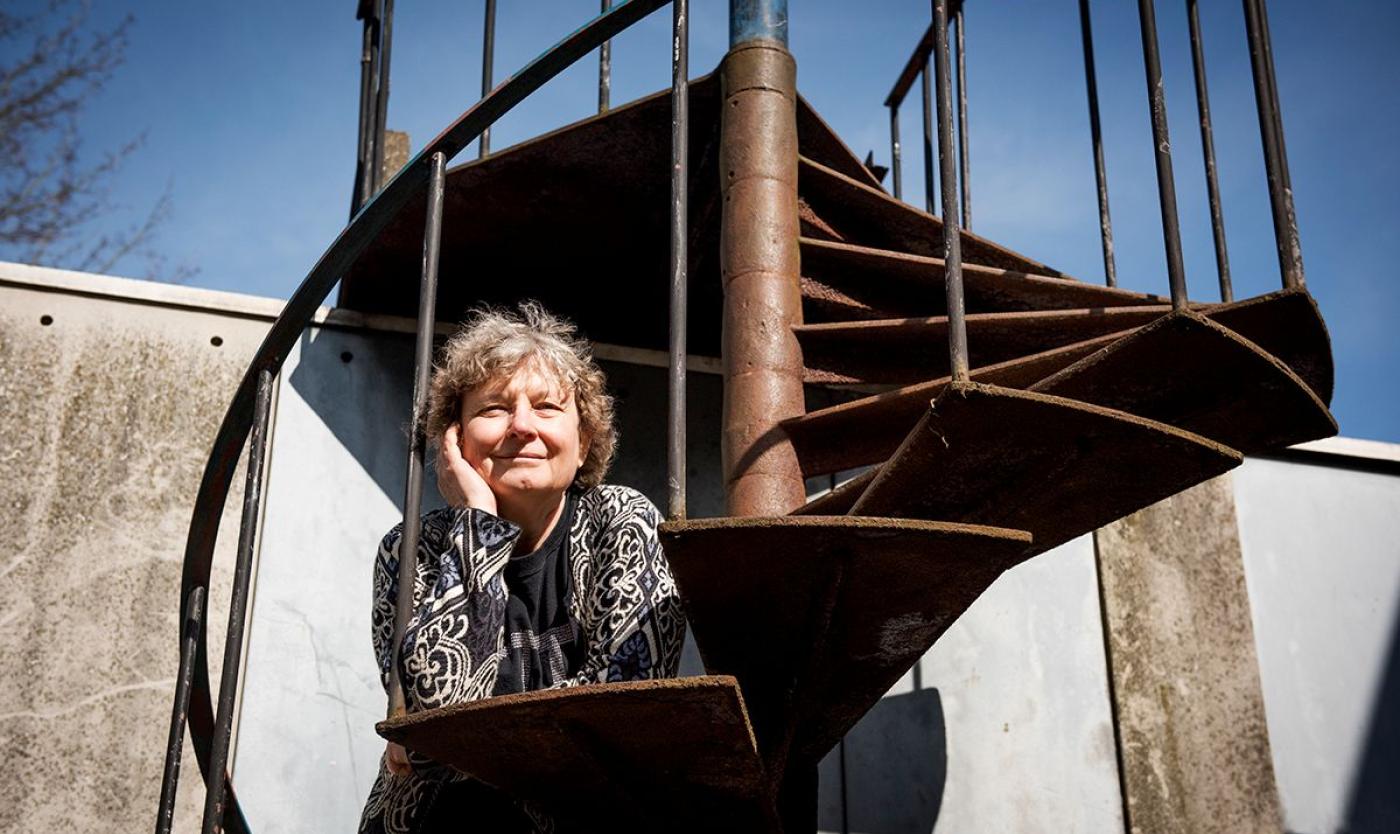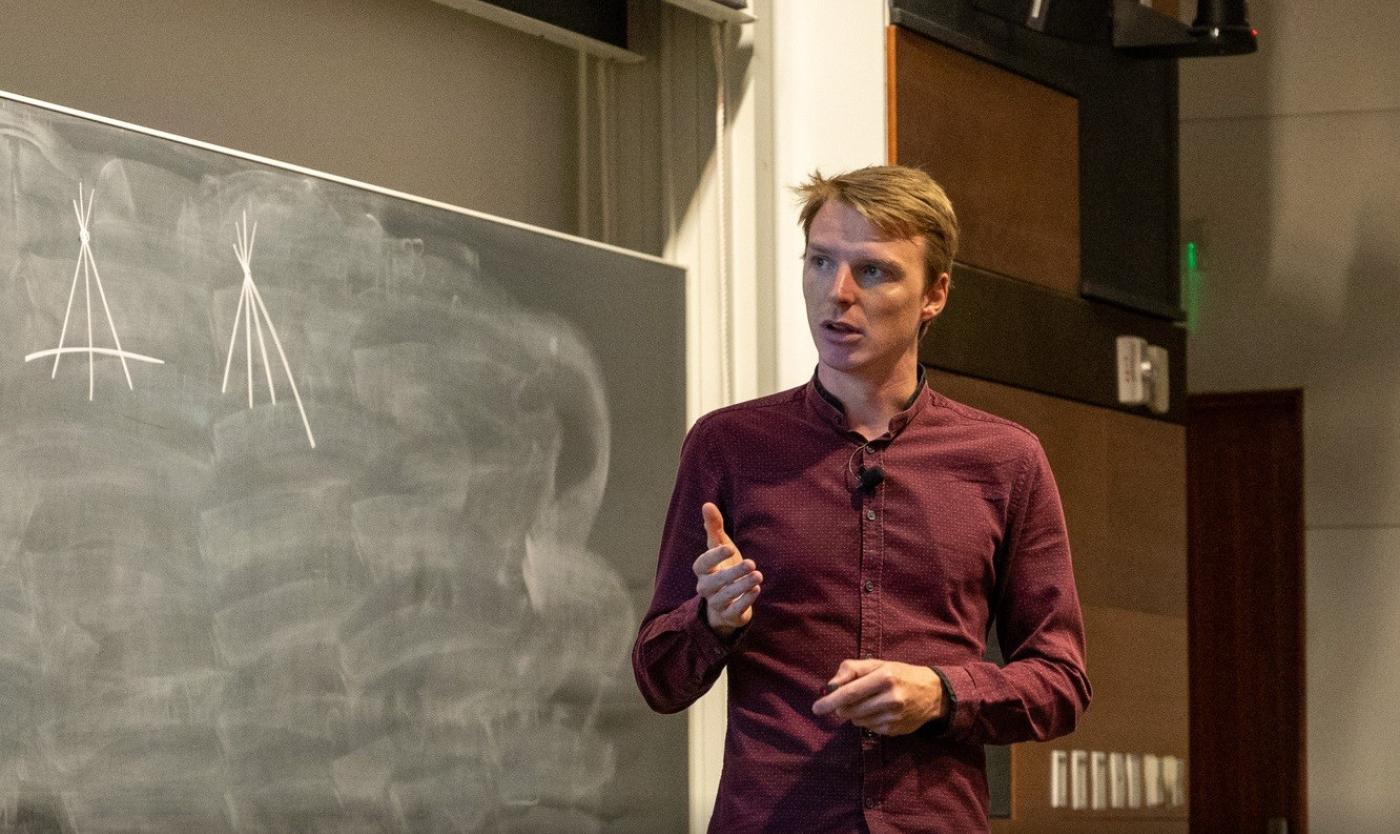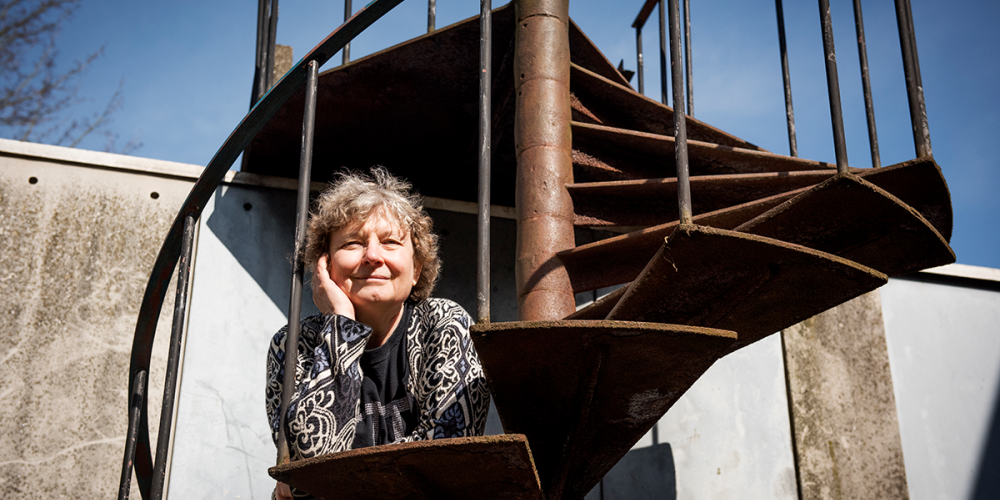
Professor Ingrid Daubechies recently received the National Medal of Science in the United States. This highest American science award honours scientists for their extraordinary contributions. Ingrid studied at VUB, built her career in the US, and is now an emeritus professor at Duke University in North Carolina. She is primarily known for her work on 'Daubechies Wavelets'. These wave-like oscillations, named after her, were crucial for the development of the JPEG2000 standard, used for digital images and live broadcasts in high resolution.
Ingrid was one of the fourteen laureates announced by President Joe Biden. "Normally, his successor Trump would have presented the award in May. But since he did not present scientific awards during his first term, it was expected that he wouldn’t this time either. That’s why the Biden administration had them handed out before his inauguration." We won’t go into Trump; he’s already getting enough attention. Just a quick note: "He essentially froze all funding, and thousands of scientists are completely unsure about what’s next. Lawsuits will surely follow."
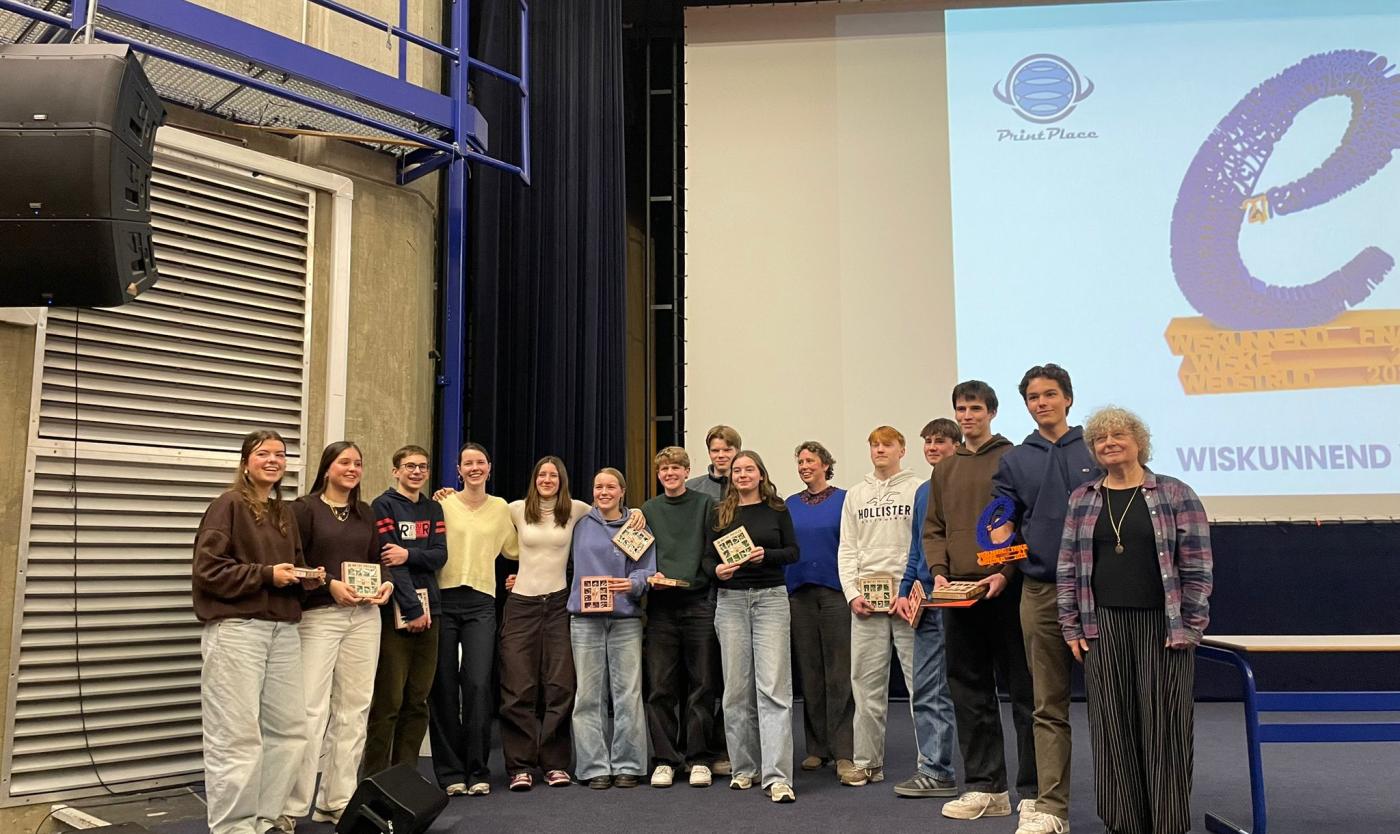
Laureates Wiskunnend Wiske 2025
You are here for the occasion of Wiskunnend Wiske, the VUB’s mathematics competition for students in the fifth and sixth years of secondary school.
Ingrid Daubechies: "I come to Belgium about twice a year, for family visits and also for VUB. I am a guest lecturer here, and a few years ago, I held the Francqui Chair (which aims to stimulate cooperation between universities, higher education, and scientific research). During a sabbatical in 2010, I came up with the concept of the Wiskunnend Wiske competition. The titles of Suske en Wiske albums are often alliterations, which we happily used. As far as I know, Dutch is the only European language where ‘mathematics’ does not have the ‘mathema’ root. The 17th-century scientist and mathematician Simon Stevin gave our language its own scientific terms, such as ‘wiskunde’ (mathematics), ‘natuurkunde’ (physics), ‘scheikunde’ (chemistry), ‘sterrenkunde’ (astronomy), and ‘meetkunde’ (geometry)."
"With Wiskunnend Wiske, I wanted to show as many young women as possible that mathematics is fun and interesting. The goal of the competition is to present questions that require real thought, not schoolbook problems. In the first year, we showed an image of what appeared to be a Rubik’s Cube, with only three sides visible. The task was to prove that this was not a Rubik’s Cube. The information provided by the image was incompatible with a six-coloured Rubik's Cube with six single-coloured sides. It required some thinking and the creation of a mathematical model."
What was the gender distribution in STEM fields at VUB when you studied here?
"The same as now, I suppose. When I graduated as a physicist here, there were four of us, and I was the only woman. I think that underrepresentation is largely culturally determined and, to a greater extent, rooted in our habits. It's a vicious cycle that reinforces itself. In Europe, this inequality varies from country to country. I once had a colleague who claimed it was related to how prestigious the position of professor was and the corresponding salary. If those two factors were low, as they were in Portugal for a time, there were more women in mathematics. In Switzerland, university professors earn very high salaries, and that contributes to the prestige of the job. I know very few female mathematicians from Switzerland, so there must be a link between money, prestige, and gender inequality. By the way, Portuguese mathematicians were just as good as elsewhere."
You became the first female professor in mathematics at Princeton.
"When it was announced that I was the first woman, I honestly didn’t feel particularly proud of that. Underrepresented groups are simply not often considered. Affirmative action aims to prevent that by actively considering them. Because minorities can definitely participate. But they need to be given the opportunity."
What motivated you in high school to continue studying?
"I’ve always been interested in mathematics and in how things work. For example, I wanted to know how fabric is woven, how it’s possible to make a knitted item with just one thread."
Isn’t that natural curiosity often suppressed in education?
"Sometimes it is, and that’s a shame. The connection between abstract mathematics and the concrete world is not always explained. Although we also have a shortage of mathematics teachers here, it’s still better than in the US, where very few mathematics teachers even studied mathematics. Then you only get lessons from the textbooks. It’s possible to distil mathematics down to just formulas and algorithms. When you teach only that way, the subject becomes rather dull. Then students don't see the value in it."
What does the National Medal of Science mean to you?
"The nomination was a surprise. I’ve won some awards, but each one still feels important. I see it as recognition, not just for me, but for everyone I know. That always deserves a celebratory event to strengthen the sense of community. Because we are and remain social beings, even though it’s possible to be both a mathematician and a huge loner. Fortunately, most mathematicians are not like that."
Do you still conduct research?
"I’ve worked in several areas, and in each, I had students who continued the research in their postdocs. I enjoy passing on my work like that. But there’s still one last idea that hasn’t really been ignited yet, and I want to keep working on it. Primarily because it’s interesting, but also to ensure that the outcome will have impact. I’m doing this research with biologists who study the morphology of teeth and bones in mammals. They were looking for a way to compare different species. Mathematicians have many concepts for that, but they don’t always work well for biologists. The group I’m collaborating with wants a mathematical concept that can be automatically implemented without needing to be measured repeatedly. Hopefully, this will also be useful in other fields."
"The idea of keeping a good student for yourself is not seen as very professional in the US"
How do you look back on your student years at VUB?
"I did my thesis and licentiate here; the bachelor and master's system didn’t exist yet. In Belgium, the vast majority of students do their PhD at the institution where they started their studies. I don’t think that’s such a good idea. Because students think they still have so much to learn from their professor. That’s true, but they can learn that elsewhere too, and moreover, students have already unconsciously learned a lot from the way their professor approaches and solves problems. When you're young, it’s better to see as many different styles and ways of thinking as possible. That enriches your own experience and possible approaches to problems. In the US, it’s completely normal to do your PhD elsewhere."
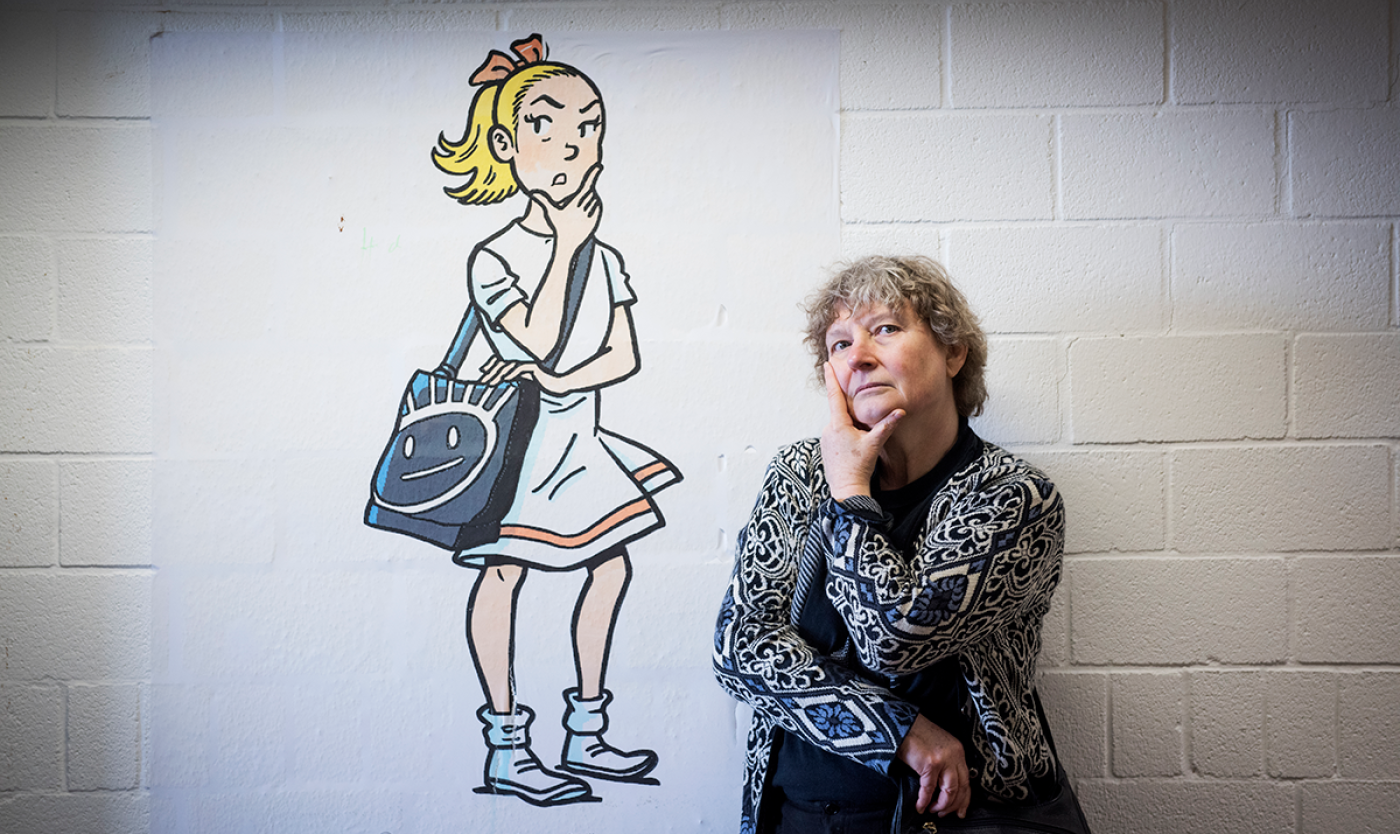
But every university wants to keep its best students, right?
"In principle, you should try to do the very best for the students. The idea of keeping a good student for yourself is not seen as very professional in the US. If everyone circulates, the net result for a university remains the same. But that’s difficult when only one institution makes a change. You need to change the whole culture. To be clear, I also completed my PhD at VUB, and I don’t regret it. I did my postdoc in the US. Although I was in physics, I was interested in using mathematical techniques. I knew there were opportunities for that in signal analysis, and that’s how I met non-physicists. I didn’t really choose to switch from physics to mathematics; it just happened. Now, I’m regarded as a mathematician, despite never having obtained a degree in it."
What did you take from the VUB values, such as ‘Thinking should not submit to dogma’?
"I had them before I started at VUB, and I still fully support them. That’s why I chose VUB, even though for a girl from Houthalen, KULeuven might have seemed like a more logical choice."
"Choosing mathematics has nothing to do with the second X chromosome, but with a cultural attitude"
What message would you like to give to girls considering a STEM field?
"If they have an aptitude or interest in that direction, they should absolutely go for it. It has nothing to do with the second X chromosome, but with a cultural attitude. Last week, I visited a few schools in the US. During a lunch with a local chapter of AWM, the American Women in Mathematics, there were also two young men present. For the first five minutes, they dominated the conversation. I pointed this out, and that encouraged the girls to speak up too. It requires a cultural shift. Too often, we listen to the loudest voice, and I noticed that I, too, used to communicate more with students who spoke up more and asked more questions. They were often boys rather than girls. Without ignoring others, I started focusing more on the quieter group, often girls, involving them more."*
*This is a machine translation. We apologise for any inaccuracies.
